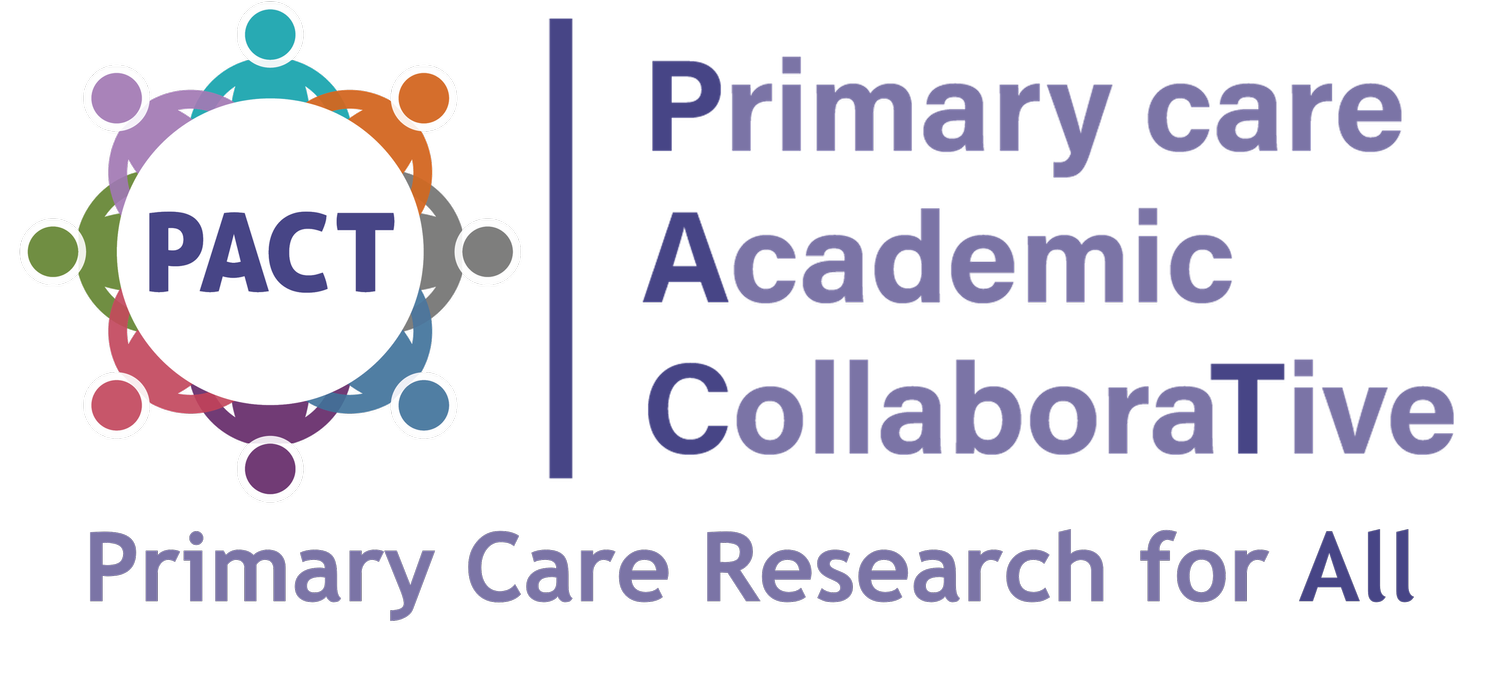Why Test (2020 - 2023)
We know rates of testing in primary care are rising. Unnecessary blood tests are important as they could lead to anxiety for patients, increased workload for GPs and increased costs for the NHS. Ensuring test results are followed up and actioned is important for patient safety.
PACT members collected anonymised data on blood tests for over 2,500 patients from 57 GP practices in England, Scotland, Wales and Northern Ireland, to find out why blood tests are requested in primary care, who requests blood tests, and what happens with the results.
Watch our video to learn more about Why Test
Chief investigator
Dr Jessica Watson
GP and Academic Clinical Lecturer
Ethics approval
University of Bristol
Faculty of Health Sciences Research Ethics Committee
Funding and support
National Institute for Health and Care Research
Applied Research Collaborative West
National Institute for Health and Care Research
Research Capability Funding (RCF) from Bristol, North Somerset and South Gloucestershire CCG
Why Test timeline
Protocol development
Sep 2020
Ethics approval
Apr 2021
Recruitment start
Feb 2022
Data collection start
Feb 2022
Data analysis start
Sep 2022
Benchmarking data
Aug 2022
Final publication
Jun 2023
Key findings
6.2% of test results led to a new diagnosis or confirmation of a diagnosis, and abnormal or borderline results were common with only around a quarter (26.6%) of patients having results in the normal range.
A quarter of tests may have been partially or fully unnecessary when reviewed retrospectively by another clinician.
Around half of tests (48%) did not lead to any change in management or reassurance, 13.4% led to further blood tests or repeat blood tests, and 2.7% led to further radiology tests.
The most common reasons for testing were symptoms (43.2%), monitoring of existing disease (30.1%), and monitoring of existing medications (10%).
Only around half of tests were requested by GPs, reflecting the multidisciplinary nature of primary care. On average 4.5 tests were requested simultaneously per patient.
57 collaborating practices
Publications and communications
Watson, J., Burrell, A., Duncan, P., Bennett-Britton, I., Hodgson, S., Merriel, S., Waqar, S., Whiting, P. and the Primary Care Academic CollaboraTive (PACT), 2023. Why test study: a UK-wide audit using the Primary Care Academic CollaboraTive to explore the reasons for primary care testing. British Journal of General Practice, BJGP.2023.0191 [Publication]
Burrell, A., Duncan, P., Bennett-Britton, I., Hodgson, S., Merriel, S.W., Waqar, S., Whiting, P. and Watson, J., 2022. Why Test study protocol: a UK-wide audit using the Primary Care Academic CollaboraTive (PACT) to explore the reasons for primary care testing. BJGP open, 6(3). [Publication]
Watson, J., 2023. "Three Coats" song; interview with Dr Jessica Watson on BJGP "WHY Test" study; rosuva vs atorvastatin; DNA cancer blood tests. NB Hot Topic Podcast. [Podcast]
Watson, J., Abdellatif, A., 2023. Why Test? The power of collaboration in primary care research. Primary Care Research & Teaching Blog, Centre for Academic Primary Care (CAPC), University of Bristol. [Blog]
Watson, J., 2023. Bloods tests in primary care – Why test and what can we learn from looking at current practice? BJGP Interviews. [Podcast]
Wilkinson, E., 2023. One in four blood tests in general practice may be unnecessary. Pulse. [News release]
CAPC, 2023. Patients need better information on usefulness of blood tests finds new audit of UK primary care tests. Centre for Academic Primary Care (CAPC), University of Bristol. [Press release]
Watson, J., 2023. Using the Primary Care Academic Collaborative to explore patient safety in actioning and communicating blood test results. BNSSG ICB Research Showcase Seminar. [Presentation]
Watson, J., Duncan, P., Bennett-Britton, I., Merriel, S.W.D., Hodgson, S., Waqar, S., Burrell, A. and Whiting. P., 2023. Why Test: Using the PACT collaborative to explore reasons for primary care testing. SAPC Annual Scientific Meeting. [Presentation]
Duncan, P., Watson, J., Bennett-Britton, I., Burrell, A., Payne, R., Silverwood, V., Whitehead, O., Waqar, S., Winn, E., Merriel, S.W.D., 2023. Primary care research for all: two proof-of-concept studies using the Primary care Academic CollaboraTive (PACT) network. SAPC Annual Scientific Meeting. [Presentation]
Watson, J., Duncan, P., Bennett-Britton, I., Merriel, S.W.D., Hodgson, S., Waqar, S., Burrell, A. and Whiting. P., 2022. Why Test? Exploring reasons for primary care testing using the Primary Care Academic CollaboraTive (PACT). WONCA Europe Conference. [Presentation]





